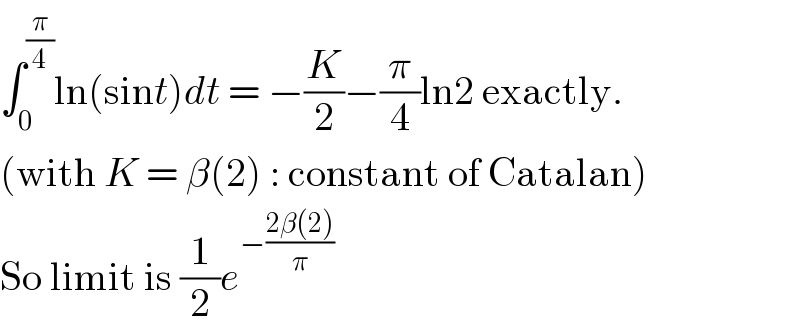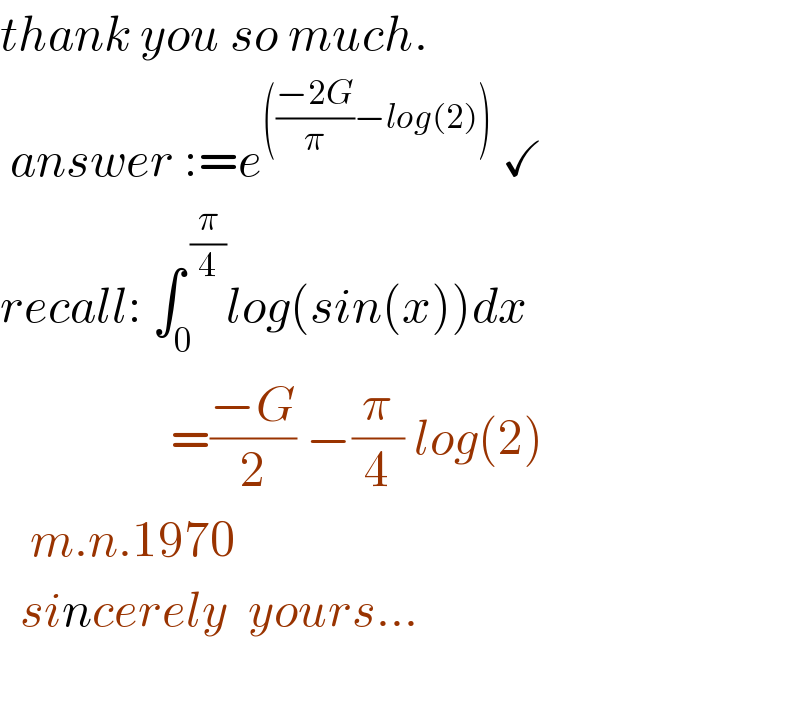
Question and Answers Forum
Question Number 117086 by mnjuly1970 last updated on 09/Oct/20

Answered by Ar Brandon last updated on 09/Oct/20

Commented by mnjuly1970 last updated on 09/Oct/20

Commented by Ar Brandon last updated on 09/Oct/20
You're welcome Sir ��
Answered by Dwaipayan Shikari last updated on 09/Oct/20

Commented by Olaf last updated on 10/Oct/20

Commented by mnjuly1970 last updated on 09/Oct/20

Commented by mnjuly1970 last updated on 10/Oct/20

